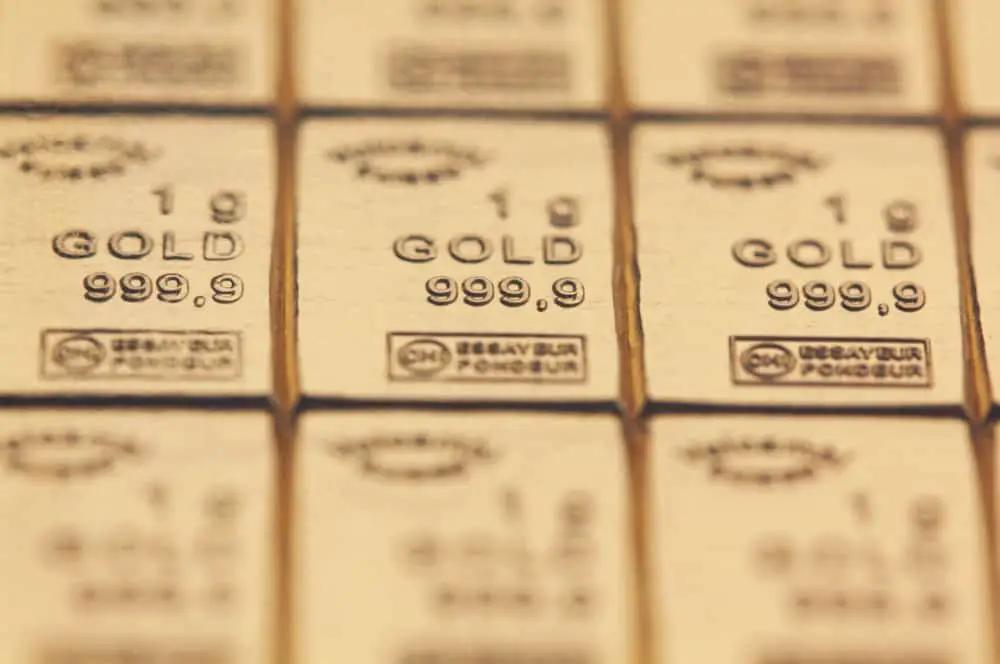Table of Contents
*This post may contain affiliate links. As an Amazon Associate we earn from qualifying purchases.
Getting your precious metals through exchanges is one of the best ways to acquire whichever metals you’re looking for, and in whatever amount you want to buy. However, before you rush out to start making purchases, you should decide what you’re buying, what the expected changes in price will be, and what you can do to minimize your risk.
The Metals You Can Trade
Most trading through exchanges focuses on four metals: gold, silver, platinum, and palladium.
Gold is an eternal favorite because it’s widely considered to have intrinsic value – and it doesn’t have too many practical applications outside of currency. Most importantly, gold cannot be ‘printed’ or inflated. There’s only so much to go around, so it’s always in demand.
Silver fluctuates more than gold. Most of this is from its use in various industrial applications, like medical devices and electronic appliances. Silver is also used in superconductors, microcircuits, and batteries. The result of this is that the price of silver tends to swing up and down, which can make it harder to sell at a reasonable price if you need to convert it to cash.
Platinum is both rarer than gold and heavily in-demand for industrial applications, especially in jewelry and automobiles. This makes it the most volatile of the three main metals, but as a general rule, the price of platinum tends to remain higher than that of gold.
Palladium is similar to platinum and used for many of the same things. It is, however, more affordable – so it’s a common alternative when platinum is too expensive for industrial use.
Can I Trade In Any Other Metals?
Yes. The four metals listed above ate the most common precious metals. Most other metals that people trade fall into the ‘industrial’ category. These include options like copper, lead, tin, zinc, aluminum, steel, nickel, and molybdenum. These aren’t ‘precious’, per se – they’re traded by the metric ton, not as individual coins or bars – but they can be a good way to diversify a portfolio.
What You Can Get Through Exchanges
There are five primary ways you can invest in precious metals through exchanges. In no particular order, these are:
Commodity Exchange Traded Funds (ETFs)
ETFs are the fastest and easiest way of buying and selling precious metals. Since they’re easy to use and have low transaction fees, these are an ideal option for anyone who wants to trade on a frequent basis. ETFs may also have lower entry points than some of the other options, making them a good choice for people who don’t have a lot of money to invest yet.
Mutual Funds
Mutual funds don’t offer much in the way of direct ownership, but they do allow for purchasing value in a wide variety of geographic areas, companies, and metal types. Mutual funds can also focus on specific areas, such as a particular mining region. If you expect mining to go well in a given area, a targeted mutual fund can be an excellent way of taking advantage of that.
However, if you don’t have much experience with the way mining stocks are valued, you should not just dump your money into a fund and expect it to grow. Instead, as with all mutual funds, take the time and research the past performance of the fund. The future performance of a fund can never be guaranteed, but if a fund has consistently done well, it’s likely a safer bet.
Futures
There are two ways to use futures when trading for precious metals. First, futures can offer a predictable supply of precious metals. If you’re worried about a shortage of supplies, having a contract ready can help you get physical metals when demand is highest. Alternatively, futures can be used to ensure there’s metal available to buy when you have the money for it.
The second way to use futures is to try and profit from differences in pricing. For example, let’s say you have a contract to buy 10 ounces of gold at $1200 per ounce. Between now and when you make the sale, the price of gold could rise to $1300 per ounce. If you want to make money before then, you could sell the contract to someone else – say, for $1250 per ounce. Both of you are profiting from this transaction.
Of course, futures trading can be highly speculative. There’s no guarantee that your contract will be worth more in the future, so it’s possible to lose big-time. On the other hand, gold, in particular, is seen as a ‘stable’ commodity, with prices that quickly recover from major drops. As long as you have the gold, chances are any drop in value will recover in the near future – so you just have to hold out until then.
Coins And Bullion
If you have a place to store them, buying coins and bullion is the safest long-term investment. In this case, you’re usually not looking to profit from the investment – instead, you’re ‘locking’ money into something that will retain its value, which serves as a hedge against a sudden drop in the value of a given currency.
That said, actually selling coins and bullion is bothersome even at the best of times. It’s hard to move, hard to trade, and needs to be properly secured. If you have a specific time you want to sell, bullion is just inconvenient. On the other hand, if you’re expecting things to go horribly wrong, nothing is better than having actual, physical possession of a precious metal.
Certificates
Certificates are coins and bullion without actually needing to move and store them. These are a good investment choice if you want to own the metal and trust that whoever holds it – often a bank or exchange – will honor the deal.
However, certificates are distinctly less valuable in the event of a major disaster. Ultimately, they are little more than pieces of paper – if you don’t have someone willing to honor them, they’re worth exactly nothing.
Where Can I Trade Precious Metals?
There are several good locations for trading precious metals.
For an American precious metals exchange, APMEX, Inc. is a relatively new – but highly reputable – company that trades in precious metals. This company focuses on direct sales of precious metals and has a wholly owned subsidiary (Citadel Global Depository Services, Inc.) offering storage and protection for those who prefer certificates over coins and bullion.
The Singapore Precious Metals Exchange (SGPMX) similarly focuses on bullion products, with high-security vaults where owned assets are physically separated by buyers. Fees are fairly low for the platform, especially because the setup of the company allows it to avoid many taxes that would otherwise make it hard to do business.
The London metal exchange focuses on the Over the Counter (OTC) market, which heavily emphasizes transparency and efficiency so the only risk is between the buyer and seller (this is good). The London exchange has five major components:
- Vaulting Services: Vaults are collectively held by the members of the London Bullion Market Association (LBMA) and the Bank of England, allowing them to physically store all metals.
- Clearing System: All transactions are cleared through London Precious Metals Clearing Limited, a central regulator that offers a complete database of activity.
- Allocation: Customers are allowed to purchase Allocated or Unallocated bars. The first offers an entitlement to specific physical items. (‘Bar’ is a bit of a misnomer, since people can and do own smaller amounts.) The second merely gives partial ownership of reserves that aren’t allocated to any one owner. These are easier to trade, but not quite as secure in the event of a crisis.
- Good Delivery: London’s exchange only accepts gold and silver bars from refiners on a list of trusted providers, and the products are constantly checked to be sure they meet the exchange’s standards.
- Pricing and Information: Finally, the London exchange offers pricing and information that people can use to make better investment decisions.
The exchanges listed above are not actually recommendations, nor are they the only places where precious metals can be traded. Always do your due diligence and compare your options before buying.
Is Investing In Precious Metals Right For Me?
It could be. Precious metals are typically a low-risk investment, which makes them an excellent way to balance a portfolio that has too much emphasis on bonds, stocks, and other volatile options. Precious metals usually offer a slow, steady growth over time, making them suitable for both long-term and short-term investments.
Also, since precious metals are always in demand, there’s always going to be someone interested in buying as long as the markets themselves remain functional. Prices can drop significantly, but as we stated above, they also tend to recover.
Disclaimer: The content on this page is for informational purposes only and should not be taken as investment advice. Before investing in any precious metals, you should talk to a financial advisor who is obligated to act in your best interests. They can provide more information about each of the options described above and whether or not those options are likely to help you meet your financial goals.

